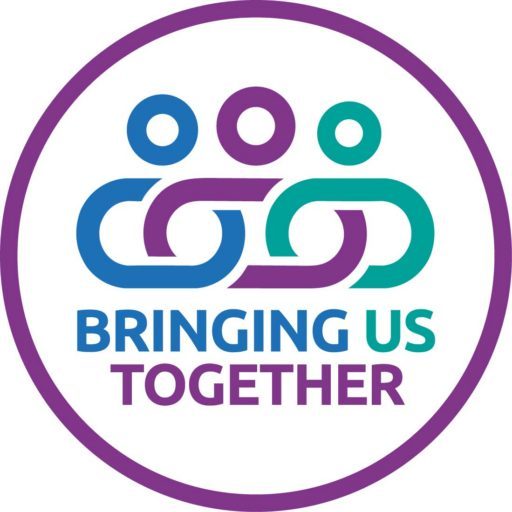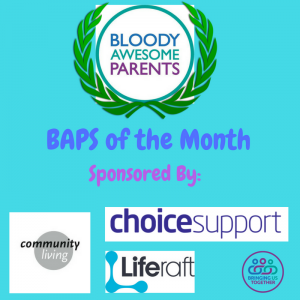Parent Groups – Measuring Success
Firstly, a huge thanks to everyone who has fed back to us about our Parent Group series. It has been great to have so many people respond to it in a positive way and has made us feel that this series is a success; which is a great way to introduce our next step – Measuring Success.
If you have missed any of the previous posts, then click here for an overview, here for tips on values and here for tips on communication. Katie and I are not experts in groups by any means, but we do however have many years of experience. We both also deliver workshops on running groups. This series is not our way of saying “look at how amazing we are” (we both know we have much left to learn), it is just our way of sharing what we have learned as we have gone along. We are hopeful that just one or two of the tips help you and your group to move forward, especially when you feel like giving it all up and walking away.
 What does success look like to your group?
What does success look like to your group?
What makes a successful parent group? This is a huge question to which there is no right answer.
Success will mean something different to every group out there. Everyone will be different. Some ways people measure success are:
- how many members the group has,
- how many grants they have managed to get,
- how many people attend an event,
- how many views their website gets,
- how many Likes they have on their Facebook page or members in their Facebook group
- how they made a difference.
Do you know how your group measures their success? Is it something you have even discussed?
How do you measure success?
To decide how you measure success, it would be useful to go back to your Values and think how you can demonstrate that you are staying true to your values.
If your value is being the best, how do you define “best” and how would you measure that? If your value is “bringing people together”, how can you measure that you are bringing people together?
Don’t presume you can measure success purely based on number of members, likes on a page, etc. You can have 1,000 members but if only 2 or 3 are actually feeding into you, then perhaps this is not so successful. So how about changing it to “active members” or “interactions on Facebook page”?
It’s the same for websites and organisations out there, having 1000 people view your site may be good but what are the people then doing with that information? Is it making a difference? How do you measure making a difference?
Goal Setting
One of the best ways of measuring success is to set some goals for your group. Goals should be SMART goals.
Specific, Measurable, Attainable, Relevant and Time-bound.
Specific: Increase membership is not specific. Increase membership by 20% is.
Measurable: You have to be able to measure it. Some things, such as number of views, members, likes on Facebook are easier to measure. However, if it is based on something like “parents are happier”, you would have to survey your members now and then again in x days/weeks/months to see if there was a difference.
Attainable: Make sure any goal is something you can achieve. Having “change the whole system” as a goal, albeit a lovely idea, is not something you can achieve in one step. So break that down into smaller achievable goals. If you want to increase your membership by 200% in 2 months, that may sound unattainable but if you only have 4 members to begin with, it’s much easier.
Relevant: It has to be something relevant to you and your group. Think about your values. If your value is “bring people together”, then having a goal of “one on one coaching for families” isn’t relevant. It may be helpful but does it fit with your values?
Time Bound: The goals should be given a deadline. In one year, one month, six months we will …… Leaving it open ended won’t help to push you and your team to reach it. It’s ok to have goals which are five or ten years down the line but what goal could you achieve this year to help you towards reaching the big goal.
Goals should also be Fun. Have fun coming up with goals, think of fun ways you can achieve them. Don’t let goal setting become a chore, or they will get forgotten.
Why should you measure success?
Why bother, we can hear some of you say; especially if you are a smaller group and think of what you do as “coffee mornings with friends”?
When you run a group or organisation of any description, especially when it is predominantly run on a voluntary basis, you will have days, even weeks, where you think “why do I even bother?”. You will want to bang your head against a wall in frustration and you will probably say more than one or two naughty words. You will feel angry (or other words similar in meaning) and you will want to walk away and give it all up.
When those days happen – and they will – first of all, go back to the values. Have the values changed? Was communication within the group poor so you missed the memo about a change in values? If the values are still the same, then look at the goals. The goal, which should reflect your values, should help to re-focus you.
If you’re having a bad day and perhaps you have been let down by someone or perhaps felt someone expected too much from you, think about the goal of the group. Why are you doing this in the first place? Why did you set it up or get involved?
If the values and the goals haven’t changed, perhaps you have. Perhaps you no longer want to be the best, perhaps you no longer want to make a profit. This happens; we all grow and many of us change as we grow. Sometimes, just admitting that you are different now and want something new is exactly the right thing for you.
Goals are a great way to measure how successful your group is. They are also, just as importantly, a great way to keep a team focussed and on board. If you are a small group offering “coffee mornings with friends”, perhaps look at the number of coffee mornings, the number of people attending them and is there a way to increase this. Perhaps you have a nice number of people and don’t want to increase it, so perhaps look at what other events the families want – is it some training, is it a social event, is it a mums’ night out? Could that be a goal? When groups are successful, they do evolve over time to meet the needs of their members however, this should never be done at the risk of losing the original values that got you there in the first place.
Measuring Success – Check List:
- Look at the group values
- Look at how you currently measure your success?
- Think of some goals as a group
- Make the goals SMART
- When you set a deadline for the goal, ensure you revisit those goals when the deadline finishes.
- Make sure everyone in the group is aware of the goals. During the series, we will be looking at leaderships and roles within a group. So when you are thinking of goals, think of ways every one in the group has a part to play to achieve those goals.
Mum to three great kids, each with a different SEN.
Transplanted from the NW to the SE.
Co-founder and Director of Bringing Us Together

 What does success look like to your group?
What does success look like to your group?





